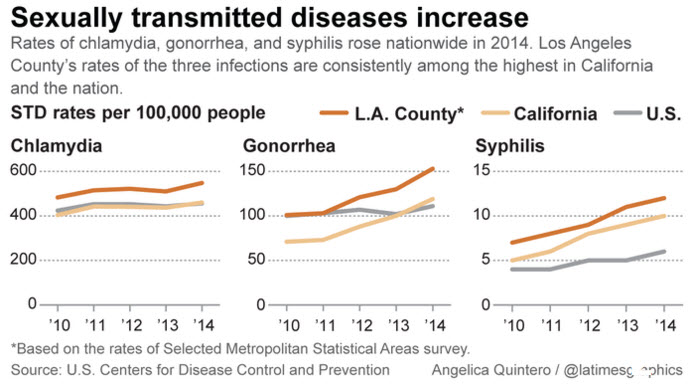STD Testing Clinics in Mendota, CA

Nestled in the heart of California’s Central Valley and located in Fresno County, the City of Mendota has much to offer its residents and visitors. Although perhaps its inhabitants don’t pay much attention to sexually transmitted diseases (STDs), statistics show that L.A. County’s rates of chlamydia and gonorrhea are among the top six of the state’s 58 counties. San Francisco, Kern and Fresno counties have higher rates of both diseases. But don’t worry. ValleySTD.com are now proud prtners with clinics for testing STDs through Mendota. If you are concerned, maybe unsure of your partner or you’re just curious and want to know more about STDs, you can contact us for an appointment or can order your anonymous online test.
Mendota, CA 93640
Common STDs in Mendota, CA
An STD is characterized by any disease that is spread by one partner to another via sexual contact, and that can be orally, vaginally, anally, or via hand to genital contact. Preventing STD transmission is first and foremost by practicing safe sex. However, if you think you might have contracted one of the most common STDs, recognizing the disease is imperative for swift treatment and further spreading. We bring you the most common STDs and the primary symptoms associated with each infection.
The Centers for Disease Control estimate that 700,000 new cases of Gonorrhea, or the “clap”, crop up every year. This long-term STD that is spread bacterially, affecting a female’s cervix, a male’s urethra, or the throat in both sexes, which means that it’s transmitted by vaginal, oral, and anal sex. The symptoms of gonorrhea are pretty subtle; the most noticeable being burning when urinating or a yellowish penile discharge in men.
Sexually transmitted hepatitis is hepatitis B (or HBV), which afflicts more than 1.25 million individuals in the U.S. even though there is a vaccine. If left untreated, a Hep B infection will scar and damage the liver, causing cirrhosis and liver cancer. Unfortunately, over half of those affected show no symptoms, but those who do suffer muscle pain and fatigue, yellowing of the eyes (or jaundice), nausea, and a distended stomach.
Syphilis is a particularly sneaky STD that caused by a type bacterial infection of the genital tract, known as Treponema Pallidum. Syphilis is transmitted when direct contact is made between the small, painless sores on the mouth, rectum, vagina, or around the genitals in areas not protected by latex condoms. It can also be transmitted via infected mother to her baby during pregnancy. When there are no sores, the disease is still present. Syphilis symptoms are rare, however, the most telling are sores or lesions on and around the genitals, as well as hair loss, sore throat, fever; headache; and a white patchy skin rash.
“Syphilis cases in the Golden State jumped by 18 percent from 2010 to 2011, according to new data released by the California Department of Public Health (CDPH). There was also a 5 percent increase in chlamydia cases and a 1.5 percent increase in gonorrhea cases.”
Like Gonorrhea, Chlamydia affects a man’s penile urethra and a woman’s cervix. However, oftentimes those who’ve contracted Chlamydia don’t show symptoms for months or even years, which explains why it’s the most common and rampant STD. If you do show symptoms, you’ll feel pain during intercourse and have a discolored, thick discharge from the vagina or penis. Transmitted via sexual penetration with an affected partner, using latex condoms can prevent transmission of this curable STD.
HIV is transmitted via the exchange of body fluids—such as semen, vaginal secretions, blood, or breast milk. Within a month or 2 of contracting HIV, about 40 to 90-percent of those afflicted suffer from flu-like symptoms including fever, fatigue, achy muscles, swollen lymph glands, sore throat, headache, skin rash, dry cough, nausea, rapid weight loss, night sweats, frequent yeast infections (for women), cold sores, and eventually, pneumonia. Luckily, many individuals who are diagnosed early can live a long, productive life with HIV thanks to a combination of highly active anti-retroviral drug therapy, which prevents to progression to AIDS.
What increases the chance of getting STDs?
- Sexual activity at a young age. The younger a person starts having sex, the greater his or her chances of becoming infected with an STD.
- Lots of sex partners. People who have sexual contact — not just intercourse, but any form of intimate activity — with many different partners are more at risk than those who stay with the same partner.
- Unprotected sex. Latex condoms are the only form of birth control that reduce your risk of getting an STD, and must be used every time. Spermicides, diaphragms, and other birth control methods may help prevent pregnancy, but they don’t protect a person against STDs.
Prevention
To prevent your chance of getting STDs you should:
- Use latex condoms every time you have sex. If you use a lubricant, make sure it’s water-based. Use condoms for the entire sex act. Condoms are not 100% effective at preventing disease or pregnancy. However, they are extremely effective if used properly. Learn how to use condoms correctly.
- Avoid sharing towels or underclothing.
- Wash before and after intercourse.
- Get a vaccination for hepatitis B. This is a series of three shots.
- Get tested for HIV.
- If you have a problem with drug or alcohol abuse, get help. People who are drunk or on drugs often fail to have safe sex.
- Consider that not having sex is the only sure way to prevent STDs.
How can I reduce my risk of getting a sexually transmitted disease?
Best STDs Doctors in Mendota, CA
We are here to help. You do not need to feel shame, but you have to and you need to think about your health. You need to be informed, be careful when you are and who you’re sexually active and you should regularly test yourself and ask that from your partner. Contact us or request an online test. We think of your health, so choose the best for yourself.
Central Valley Testing Clinics

